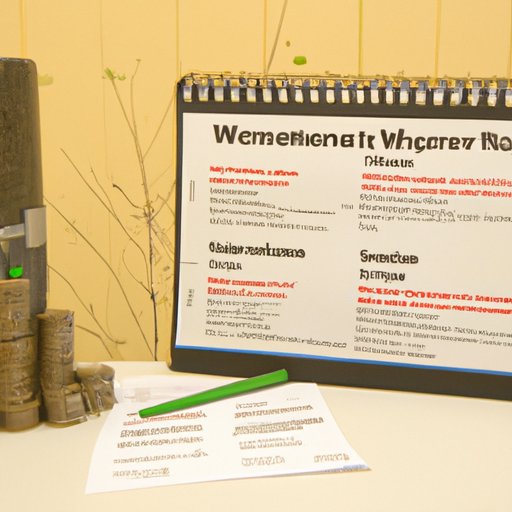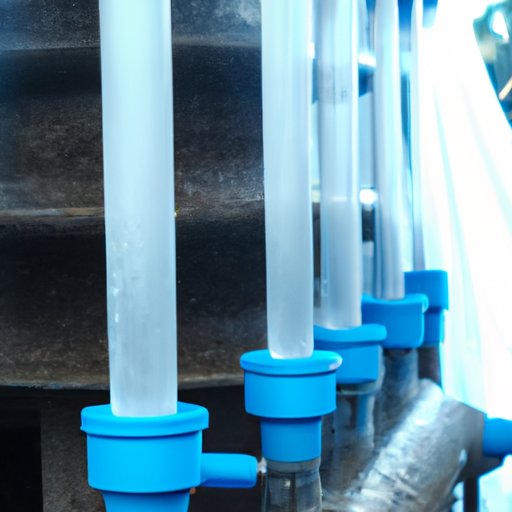Introduction
Well water is a type of groundwater that has been filtered through layers of rock and sediment in the earth’s surface. This process removes impurities and makes the water safe for drinking. The process of well water filtration typically takes place over several years, allowing natural minerals to be absorbed into the water.

Examining the Quality of Well Water
In order to ensure the safety of well water, it is important to have the water tested regularly. Testing can identify contaminants such as bacteria, lead, nitrates, and arsenic. If any of these contaminants are present, additional treatments may be necessary in order to make the water safe for consumption.

Discussing the Benefits of Using Well Water
Using well water has a number of advantages over other sources of water. One of the key benefits is that it is free from chlorine and other chemicals that can be found in municipal water systems. Additionally, well water is often richer in minerals than other sources, which can provide health benefits. Studies have shown that well water may reduce the risk of certain diseases and provide added nutrients to the body.
Comparing Well Water to Other Sources of Water
When comparing well water to other sources, it is important to consider both the cost and the taste. Generally, well water is more affordable than other sources, especially if you own the well and do not need to pay for the installation or maintenance. However, some people find that well water has a distinct taste that they do not enjoy.
Describing How to Maintain a Well Water System
In order to ensure that your well water system is functioning properly, it is important to understand the various components of the system. These components include the pump, pressure tank, piping, and filter. Regularly checking and maintaining these components can help to ensure that the water is safe and reliable. A regular maintenance checklist should include checking for leaks, inspecting the pressure tank, and testing the water for contaminants.

Analyzing the Cost of Installing and Maintaining a Well Water System
The initial cost of installing a well water system can vary depending on the size and complexity of the system. Generally, the cost will range from $3,000 to $15,000. Once the system is installed, there will be ongoing maintenance costs associated with the system. These costs can include repairs, testing, and the replacement of parts.
Conclusion
Well water can be a great source of clean and safe drinking water. It is often more affordable than other sources and may provide health benefits due to its mineral content. In order to ensure that the water is safe to drink, it is important to have the water tested regularly and to maintain the well water system properly. With proper care, well water can be a reliable and economical source of water for many years to come.
(Note: Is this article not meeting your expectations? Do you have knowledge or insights to share? Unlock new opportunities and expand your reach by joining our authors team. Click Registration to join us and share your expertise with our readers.)
